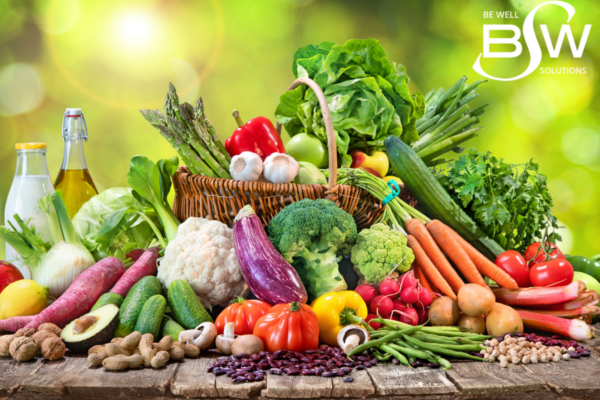The power of healthy nutrition is often understated. But, as the American Institute for Cancer Research (AICR) reminds us, nearly one third of cancer cases are preventable through lifestyle changes. Some of these lifestyle changes revolve around not using tobacco products and regular exercise, but the majority of recommendations focus on nutritional strategies.
As research evolves, so does our understanding of how diet influences cancer risk. Certain foods provide the potential to fight cancer, while others increase the risk. The AICR has recently updated their guidelines, providing actionable steps people can take to reduce their risk by making better dietary choices.
Here are some dietary strategies the AICR endorses to reduce lifetime cancer risk.
Embrace a Plant-Based Diet
One of the cornerstone recommendations is to prioritize whole grains, vegetables, fruits, and beans. These foods are rich in fiber, vitamins, minerals, and antioxidants, which play a crucial role in protecting our cells from damage that can lead to cancer. For people unfamiliar with strategies to begin plant based nutrition, check out the website forksoverknives.com for some easy and crowd pleasing plant-based recipes.
- Whole Grains: Incorporate brown rice, quinoa, oats, and whole wheat products into your meals. These grains are not only filling but also help maintain stable blood sugar levels.
- Fruits and Vegetables: Aim for at least five portions daily. Diverse colors often indicate a variety of nutrients, so mix it up with leafy greens, berries, carrots, and bell peppers.
- Legumes: Beans, lentils, and chickpeas are excellent sources of protein and fiber, making them great meat alternatives.
Limit Red and Processed Meats
The AICR advises reducing the intake of red meats like beef, pork, and lamb, and avoiding processed meats such as bacon, sausages, and deli meats. These foods have been linked to an increased risk of colorectal cancer.
- Alternative Proteins: Choose poultry, fish, or plant-based proteins like tofu and tempeh.
- Cooking Methods: When you do consume red meat, choose lean cuts and cook them at lower temperatures to reduce the formation of harmful compounds.
Limit Fast Foods and Processed Snacks
These foods are high in fat, sugar, and starch, and contribute to weight gain and obesity, which is a significant risk factor for several types of cancer.
- Healthy Swaps: Replace chips and cookies with nuts, seeds, or fresh fruit.
- Mindful Eating: Prepare meals at home when possible, allowing you to control the ingredients and portion sizes.
Limit Alcohol Intake
Alcohol intake is linked to cancers of the mouth, throat, esophagus, liver, breast, and colon. The AICR recommends limiting alcoholic drinks to no more than one per day or avoiding alcohol altogether. Explore mocktails, flavored water, or herbal teas as enjoyable substitutes.
Stay Hydrated with Water and Unsweetened Beverages
Sugary drinks contribute to weight gain and offer little nutritional value. Choose water, unsweetened teas, or infused water with slices of lemon, cucumber, or berries. Check nutrition facts labels to determine the amount of added or natural sugars in sodas and juices. Make certain to drink enough water through the day – The National Academy of Medicine suggests an adequate intake of daily fluids of about 13 cups and 9 cups for healthy men and women, respectively, with 1 cup equaling 8 ounces. For more information on proper hydration, check out the Harvard School of Public Health.
The journey to reducing cancer risk through nutrition is a proactive step toward overall wellness. By embracing these recommendations from the AICR, you’re not only contributing to your health but also setting a positive example for those around you.
We wish you good health throughout the autumn months and beyond.
Continue Reading October 2024 Newsletter: Understanding Genetic BreastCancer

